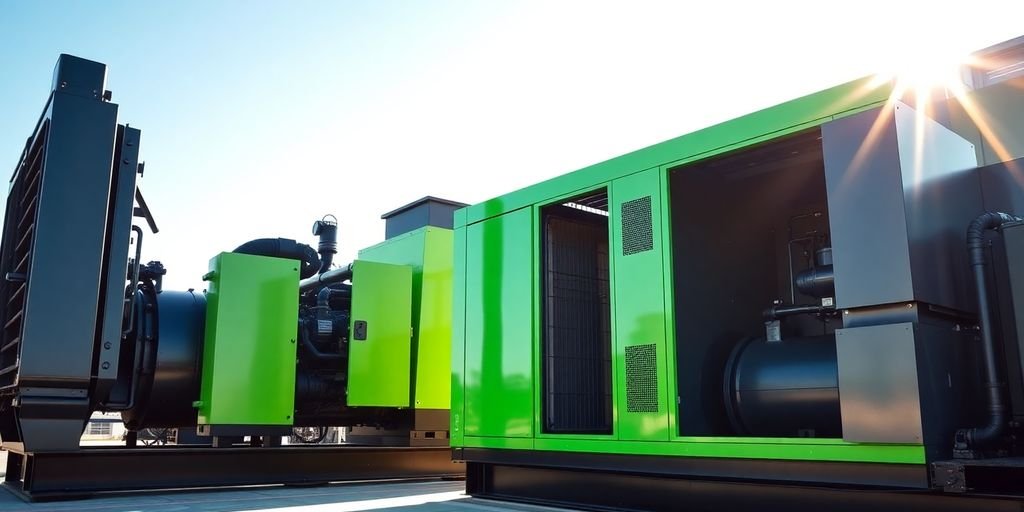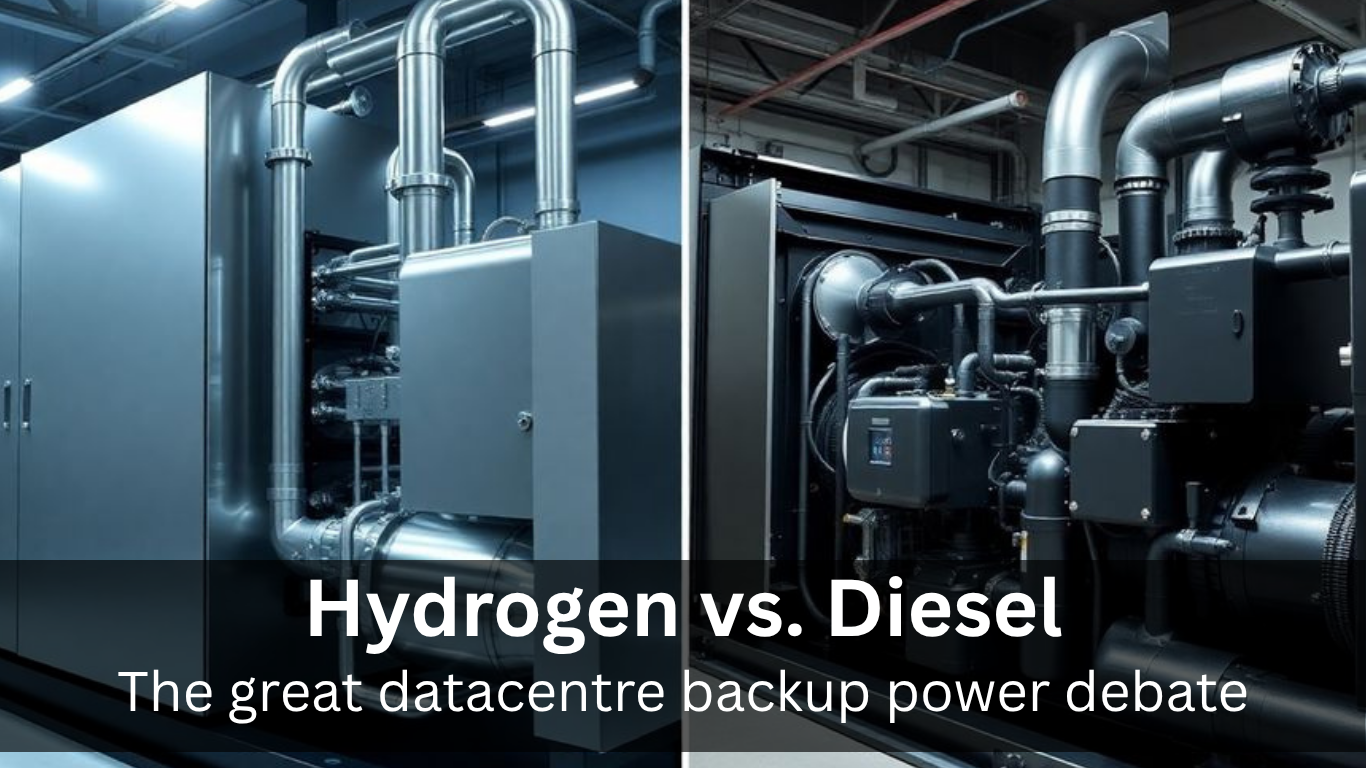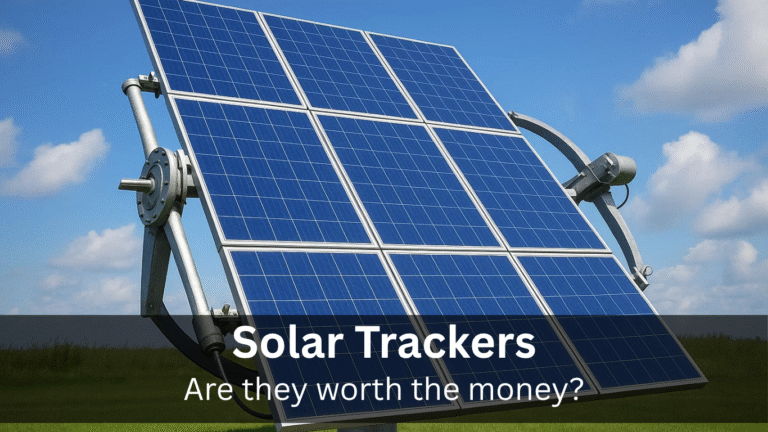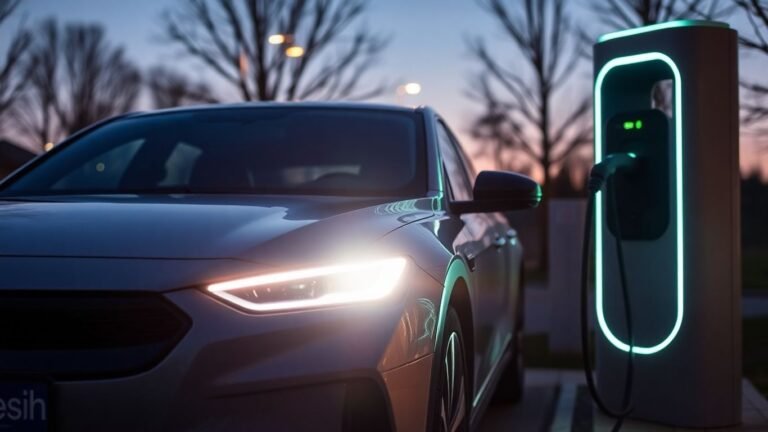Hydrogen vs. Diesel Generators: The Future of Sustainable Backup Energy
Datacenters keep our digital world running, but they need a lot of power. Traditionally, big diesel generators have been the go-to for backup power when the main grid goes down. But things are changing. With more focus on green energy and stricter rules, people are starting to look at other options. One of the main contenders is hydrogen fuel cells. This article will explore the ongoing debate: Hydrogen vs. diesel, and see which one might be the better choice for keeping datacenters humming in the future.
Key Takeaways
- Datacenters are moving away from diesel due to environmental concerns and complex upkeep.
- Hydrogen fuel cells are a promising alternative, with companies like Microsoft already testing them out.
- Even with their benefits, hydrogen systems have their own problems, like tricky storage and higher fuel costs.
- Hydrogen and diesel power systems work differently, especially with how they generate electricity and handle power changes.
- Building and having hydrogen systems means dealing with new safety rules and figuring out if they’re worth the money compared to what’s already in place.

Driving Away From Diesel
For decades, diesel generators have been the go-to solution for backup power in data centers. They’re reliable, well-understood, and relatively inexpensive to operate… until you start looking at the bigger picture. Now, there’s a real push to move away from diesel, and it’s coming from a few different directions.
The Shift Towards Greener Alternatives
The biggest reason for ditching diesel is its environmental impact. Data centers are huge energy consumers, and using diesel generators just adds to their carbon footprint. There’s growing pressure to adopt cleaner energy sources, and that includes backup power. People are actively looking for ways to reduce emissions and improve sustainability, and diesel just doesn’t fit into that plan. Alternatives like hydrogen fuel cells are becoming more attractive as companies aim for net-zero goals.
Regulatory Pressures and Sustainability Goals
Regulations are getting stricter, too. Governments are cracking down on emissions, noise pollution, and air quality, which means older diesel generators might not even be compliant anymore. This is forcing companies to think about replacing their generators sooner rather than later. Plus, many organizations have their own sustainability goals, and diesel generators make it really hard to meet those targets. The pressure against diesel generators will be reinforced by increasing regulations aimed at reducing CO2, noise, and air pollution.
Maintenance and Logistical Complexities of Diesel
Beyond the environmental concerns, diesel generators also come with some practical headaches. Storing diesel fuel can be a pain, especially in large quantities. You have to worry about fuel degradation, leaks, and spills. Plus, there’s the ongoing cost of maintenance and testing to make sure the generators are ready to go when you need them. It’s not just about the fuel itself; it’s about the whole logistical chain that comes with it. Here are some of the issues:
- Fuel storage requirements
- Regular maintenance schedules
- Fuel delivery logistics
Hydrogen Fuel Cells as a Diesel Alternative
Diesel generators have been the go-to for backup power for ages, but things are changing. More and more, people are looking at hydrogen fuel cell backup power as a cleaner, more sustainable option. It’s not just about being green; there are real advantages to consider.
The Shift Towards Greener Alternatives
Let’s face it, diesel generators aren’t exactly eco-friendly. They pump out emissions, and nobody wants that. The move toward greener alternatives is driven by a desire to reduce our carbon footprint and create a more sustainable future. Hydrogen fuel cells offer a way to generate electricity with minimal environmental impact. Plus, they’re quiet, which is a nice bonus.
Regulatory Pressures and Sustainability Goals
Regulations are getting stricter, and sustainability is no longer just a buzzword. Companies are setting ambitious goals to reduce their environmental impact, and diesel generators just don’t fit into that picture. Hydrogen fuel cells can help organizations meet these goals and stay ahead of the curve. It’s about doing what’s right for the planet and for business.
Maintenance and Logistical Complexities of Diesel
Diesel generators require regular maintenance, fuel deliveries, and storage. It can be a logistical headache. Hydrogen fuel cells, on the other hand, have fewer moving parts and require less maintenance. This can save time and money in the long run. Plus, you don’t have to worry about fuel deliveries or storage, which simplifies things considerably. HVO can serve as a temporary fuel to reduce carbon output from existing diesel generators as the transition to cleaner options progresses.
Microsoft’s Pioneering Efforts in Fuel Cell Testing
Microsoft has been a leader in testing and implementing hydrogen fuel cells in datacenters. Their efforts have shown that hydrogen fuel cells are a viable alternative to diesel generators. They’ve invested heavily in research and development, and their findings have helped to pave the way for wider adoption of this technology. It’s exciting to see companies like Microsoft taking the lead in this area.
Advancements in Fuel Cell Technology and Cost Reduction
Fuel cell technology is constantly improving, and costs are coming down. As production scales up, the price of fuel cells will continue to decrease, making them an even more attractive option. These advancements are making hydrogen fuel cells more accessible and affordable for a wider range of applications. It’s a promising trend that will help to accelerate the transition to cleaner energy sources.
Hydrogen’s Role in Grid Load Balancing
Hydrogen fuel cells can also play a role in grid load balancing. They can use excess energy from renewable sources to produce hydrogen, which can then be used to generate electricity when demand is high. This helps to stabilize the grid and make better use of renewable energy. It’s a win-win situation for everyone involved.
Hydrogen fuel cells offer a compelling alternative to diesel generators for backup power. They’re cleaner, quieter, and require less maintenance. While there are still challenges to overcome, the benefits of hydrogen fuel cells are becoming increasingly clear. As technology improves and costs come down, hydrogen fuel cells will play a bigger role in powering our datacenters and other critical infrastructure. The potential of diesel generator alternatives is huge.
Hydrogen Versus Diesel: The Drawbacks

Complexities of Hydrogen Storage
Storing hydrogen presents significant hurdles compared to diesel. Hydrogen’s low volumetric energy density means it requires either high compression or cryogenic temperatures for efficient storage. This leads to complex and costly storage solutions. Diesel, on the other hand, is easily stored as a liquid at atmospheric temperature and pressure. The need for specialized, high-pressure tanks or super-cooled containers adds to the infrastructure costs and complexity of using hydrogen in data centers. This is a big deal when you consider the space constraints and safety regulations that data centers already have to deal with.
Cost Discrepancies: Hydrogen Versus Diesel Fuel
While the cost of a PEM fuel cell might be similar to a diesel generator of the same capacity, the fuel itself tells a different story. Hydrogen is currently more expensive than diesel. The cost of hydrogen production, transportation, and storage contributes to this price difference.
- Hydrogen production costs
- Transportation expenses
- Storage infrastructure investments
One way to think about it is this: diesel has a well-established supply chain, while hydrogen’s is still developing. This means that the economies of scale that drive down diesel prices aren’t yet in place for hydrogen. Until hydrogen production becomes more efficient and widespread, it will likely remain a more expensive fuel option.
Ethical and Environmental Considerations of Hydrogen Production
Even with the promise of green hydrogen, there are ethical and environmental considerations. The production of green hydrogen, while cleaner than other methods, still requires significant energy input. If this energy comes from non-renewable sources, the overall environmental benefit is diminished. Additionally, the materials used in fuel cells, such as platinum, raise ethical concerns related to mining practices. We need to think about the environmental impact of sourcing these materials and ensure responsible and sustainable practices are in place. It’s not enough to just switch to hydrogen; we need to make sure we’re doing it the right way.
Technical Differences: Hydrogen Versus Diesel

AC Versus DC Power Generation
When we look at the electrical side, there are some big differences between fuel cells and diesel generators. Diesel generators create alternating current (AC), while fuel cells produce direct current (DC). This is a key distinction. It means that integrating fuel cells into existing AC-based data centers requires extra conversion steps, which can affect efficiency and add to the cost. However, the DC output of fuel cells could be a plus for data centers that are already set up to use DC power, potentially simplifying the power distribution and reducing losses. It’s all about how the data center’s power infrastructure is designed.
Power-Up and Load Assumption Characteristics
Another thing to consider is how quickly each system can power up and handle big loads. Diesel generators are known for their quick start times and ability to handle sudden increases in power demand. They can go from zero to full power in a matter of seconds, which is important for backup power applications. Fuel cells, on the other hand, generally have slower start-up times. This can be a problem if you need reliable emergency power right away. However, advancements are being made to improve the response time of fuel cells, so this gap may narrow in the future.
Efficiency Considerations for DC Systems
Efficiency is always a big deal when it comes to data centers. With diesel generators, you have the efficiency of the engine itself to think about, as well as losses in the AC to DC conversion if the data center uses DC power. Fuel cells, because they produce DC directly, can eliminate one conversion step in DC-based systems, potentially leading to higher overall efficiency. However, the efficiency of the fuel cell itself, as well as the efficiency of hydrogen production and storage, also needs to be factored in. It’s a complex equation with a lot of variables.
Ultimately, the choice between hydrogen and diesel depends on the specific needs and priorities of the data center. Factors like power requirements, existing infrastructure, cost considerations, and sustainability goals all play a role in the decision.
Mechanical Design and Safety Standards
Challenges in Hydrogen Storage System Design
Designing hydrogen storage systems presents unique challenges. Unlike diesel, which can be stored relatively easily in tanks, hydrogen requires specialized storage solutions due to its low density and flammability. High-pressure tanks, cryogenic storage, and material-based storage are all options, each with its own set of engineering hurdles. These include material selection to prevent hydrogen embrittlement, ensuring leak-proof seals, and managing thermal insulation for cryogenic systems. The physical footprint of hydrogen storage can also be significantly larger than diesel for the same energy capacity, impacting datacenter layout.
Flammability and Explosivity Risks
Hydrogen’s flammability range is much wider than that of diesel, making it more susceptible to ignition. Ventilation systems are critical to prevent accumulation of hydrogen in enclosed spaces. Safety measures must include:
- Hydrogen detectors with automatic shut-off systems.
- Spark-proof equipment to minimize ignition sources.
- Proper grounding and bonding to prevent static electricity buildup.
- Flame arrestors and explosion vents to mitigate potential explosions.
Dealing with hydrogen requires a different mindset than diesel. It’s not just about containing a fuel; it’s about managing a highly reactive element. The entire system, from storage to delivery, needs to be designed with safety as the top priority.
Compliance with Rigorous Safety Standards
Meeting safety standards is paramount for hydrogen fuel cell systems in datacenters. These standards cover everything from system design and installation to operation and maintenance. Some key areas of focus include:
- International codes and standards: Organizations like the International Electrotechnical Commission (IEC) and the National Fire Protection Association (NFPA) provide guidelines for hydrogen safety.
- Local regulations: Datacenters must comply with local building codes and fire safety regulations, which may have specific requirements for hydrogen systems.
- Certification: Components and systems should be certified by recognized testing laboratories to ensure they meet safety standards. For example, alternative primary power solutions must be certified for use in data centers.
Adhering to these standards not only ensures the safety of personnel and equipment but also helps to build confidence in the use of hydrogen as a reliable backup power source.
Implementation of Hydrogen Fuel Cells in Datacenters
Cost Implications of Adopting Hydrogen Technology
Switching to hydrogen tech in data center power solutions involves some serious money considerations. It’s not just about buying the fuel cells themselves; you’ve got to think about hydrogen storage, infrastructure upgrades, and ongoing maintenance. Right now, hydrogen fuel cells often come with a higher upfront cost compared to traditional diesel generators. However, potential long-term savings could come from reduced emissions penalties and a better public image. The initial investment can be a barrier, but the long-term benefits related to sustainability are becoming more attractive.
Feasibility as a Replacement for Existing Diesel Generators
Can hydrogen fuel cells really replace diesel generators? It’s a complex question. While hydrogen offers the promise of cleaner backup power, there are practical challenges. For one, existing data centers would need significant modifications to accommodate hydrogen storage and fuel cell systems. Plus, the current availability of hydrogen, especially green hydrogen, is limited. For many data centers, a complete switch might not be feasible right away. A more likely scenario involves a gradual transition, with hydrogen fuel cells supplementing diesel generators in certain applications.
Future Use Cases: Backup Versus Constant Power
How will hydrogen fuel cells be used in the future? There are two main possibilities: backup power and constant power. For backup power, data centers would rely on hydrogen fuel cells only during outages. This requires significant onsite hydrogen storage. Constant power, on the other hand, would involve running fuel cells continuously, potentially connected to a hydrogen pipeline. Each approach has its pros and cons. Backup power ensures sustainable backup power during emergencies, while constant power could help with grid load balancing. The choice depends on factors like cost, availability of hydrogen, and the specific needs of the data center.
The future of hydrogen in data centers hinges on making green hydrogen cost-competitive with traditional energy sources. If the industry can overcome the cost and infrastructure hurdles, hydrogen fuel cells could become a mainstream solution for reducing carbon emissions and improving the sustainability of data centers. This shift aligns with the growing demand for renewable energy for data centers and a more environmentally responsible approach to powering the digital world.
Sustainability: A Key Driver for Hydrogen
Reducing Carbon Emissions with Hydrogen Fuel Cells
Switching to hydrogen fuel cells is a big move toward cutting down on carbon emissions. Traditional diesel generators release a lot of greenhouse gases, but hydrogen fuel cells, especially when using green hydrogen, offer a much cleaner alternative. This is because the only byproduct of a hydrogen fuel cell is water. It’s a pretty straightforward way to shrink the carbon footprint of data centers.
The Role of Green Hydrogen in Datacenters
Green hydrogen is made using renewable energy sources, like solar or wind, to split water molecules. This process means the hydrogen production itself is carbon-neutral. Using green hydrogen in data centers can really help them meet their sustainability goals. It’s not just about reducing emissions during backup power use; it’s about supporting a whole sustainable solution.
Here are some ways green hydrogen can be used:
- Backup power for emergencies
- Continuous power to supplement the grid
- On-site hydrogen production to reduce transportation emissions
Cost-Effectiveness of Green Hydrogen Versus Utility Electricity
Okay, let’s talk money. Right now, green hydrogen can be more expensive than regular electricity from the grid or even diesel. But, the costs of renewable energy are dropping, which will make green hydrogen cheaper over time. Plus, there are other things to consider, like carbon taxes and incentives for using clean energy. These factors can make green hydrogen a more attractive option in the long run. It’s a bit of a balancing act, but the trend is definitely pointing toward cheaper green hydrogen in the future.
Investing in green hydrogen isn’t just about saving the planet; it’s also about future-proofing your business. As regulations get stricter and consumers demand more sustainable practices, data centers that embrace green hydrogen will have a competitive edge. It’s a smart move for both the environment and the bottom line.
The Final Word
So, what’s the takeaway here? It’s pretty clear that hydrogen fuel cells are a big step forward for data centers looking to cut down on carbon. But, it’s not as simple as just swapping out one for the other. There are real challenges, like how to store all that hydrogen safely and affordably, and making sure it’s actually “green” hydrogen. Diesel generators have been around forever for a reason, they’re reliable and pretty straightforward. Hydrogen is still kind of new in this space, and it’s got some kinks to work out. It’s going to take some smart planning and maybe even new ways of doing things to make hydrogen a truly practical and affordable option for keeping our data centers running when the power goes out. It’s a big puzzle, and we’re still putting the pieces together.
Frequently Asked Questions
Why are data centers looking for alternatives to diesel power?
Data centers are moving away from diesel because of new rules, a bigger focus on being green, and the hassle of keeping diesel generators running. Diesel needs special care, like regular fuel changes and testing, which adds extra work and costs.
How do hydrogen fuel cells help data centers?
Hydrogen fuel cells are a promising option because they don’t pollute the air. Companies like Microsoft are testing them and finding that the technology is getting better and cheaper. They can also help balance the power grid by storing extra energy from renewable sources.
What are the main problems with using hydrogen for backup power?
Storing hydrogen is tricky because it takes up a lot of space and can be dangerous if not handled correctly. Also, hydrogen fuel is currently more expensive than diesel, which is a big hurdle for data centers.
What’s the difference in how hydrogen and diesel generators make power?
Diesel generators make AC power, while hydrogen fuel cells make DC power. This means data centers might need to change their electrical systems. Fuel cells also start up and handle big power needs differently than diesel generators.
What are the safety concerns with hydrogen in data centers?
Designing systems to store hydrogen is much harder than for diesel. Hydrogen can be explosive and needs to be kept at certain temperatures or pressures, so strict safety rules must be followed. This can make it tough to store hydrogen on-site, especially in cities.
How does hydrogen help data centers be more sustainable?
Using hydrogen fuel cells can greatly cut down on carbon pollution, especially if they use “green hydrogen” made from renewable energy. This helps data centers meet their goals for being more environmentally friendly.









5 Comments